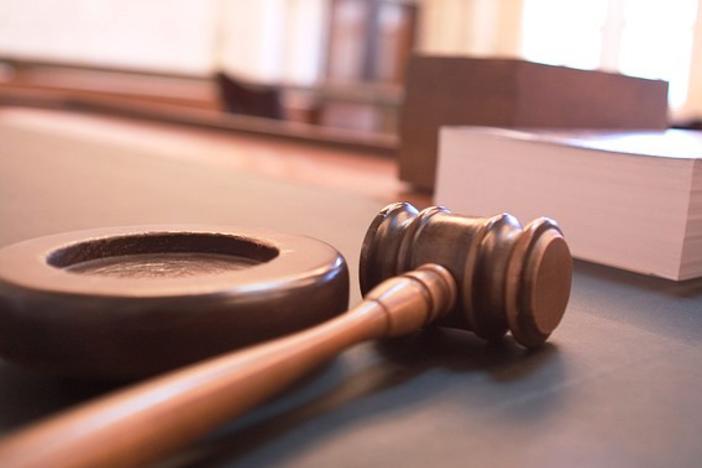
Caption
Fulton County's RICO case against former President Trump and his allies in an alleged conspiracy to overturn the 2020 presidential election could take more than four months, the district attorney's office said.

Fulton County's RICO case against former President Trump and his allies in an alleged conspiracy to overturn the 2020 presidential election could take more than four months, the district attorney's office said.
The Fulton County District Attorney's office says it would take an estimated four months and 150 witnesses to present its case against 19 people accused of violating the state's anti-racketeering law in a failed effort to overturn Georgia's 2020 presidential results.
Special prosecutor Nathan Wade gave the estimate in a Fulton County Superior Court hearing Wednesday where a judge denied requests from Kenneth Chesebro and Sidney Powell to sever their cases from each other after separately requesting speedy trials that would start by the end of October. That four-month timeline would not include jury selection, which could be a monthslong process itself given the high-profile nature of the case.
Judge Scott McAfee said that both Chesebro, accused of authoring memos outlining a plan to have Republicans in key swing states falsely claim to be official electors, and Powell, accused of orchestrating an effort to unlawfully copy voting machine data in rural Coffee County, would be on track for an Oct. 23 trial date, with scheduling orders for the rest of the defendants hopefully sorted out by the end of next week.
McAfee expressed skepticism that all 19 defendants would go to trial next month in the complicated case that has ensnared former President Donald Trump and also has multiple defendants seeking to remove their charges to federal court. Judge Steve Jones held the first removal hearing featuring Trump's former chief of staff Mark Meadows last week, with more on the docket next week. Meadows and others argue the actions they are charged with by prosecutors were part of their official duties as federal officials and protected as such from prosecution.
In addition to question of trying all 19 defendants in less than seven weeks' time and the question of who, if anyone, would have their case heard in federal court, McAfee also said his consideration around scheduling and severance would include the timing of any potential appeals to the 11th Circuit Court of Appeals that would likely take months to clear up.
"The other things to think in mind is this is going to be a case with a lot of pretrial motions, and again I don't know how many hearings we're going to need to have to sort through all those," he said. "But if we compress our timeline to 40 something days, our ability to even be able to really weigh those and think through these issues again, it just seems a bit unrealistic to think that we can handle all 19 in fortysomething days."
Wade and the Fulton DA's office said their time estimate would not change no matter how many different trials take place or how the defendants might be split up.
"Anytime a person enters into a conspiracy, they are liable for all of the acts of all of their coconspirators," Deputy District Attorney Will Wooten said. "And that's it: Evidence against one is evidence against all, and as Mr. Wade noted to the court, the state's position is that whether we have one trial or 19 trials, the evidence is exactly the same. The number of witnesses is the same."
Attorneys for Powell and Chesebro argued that since they were involved in separate "buckets" of activities alleged in the 98-page conspiracy that they should not be tried together because of concerns about evidence of the rest of the defendants prejudicing the jury on their specific actions.